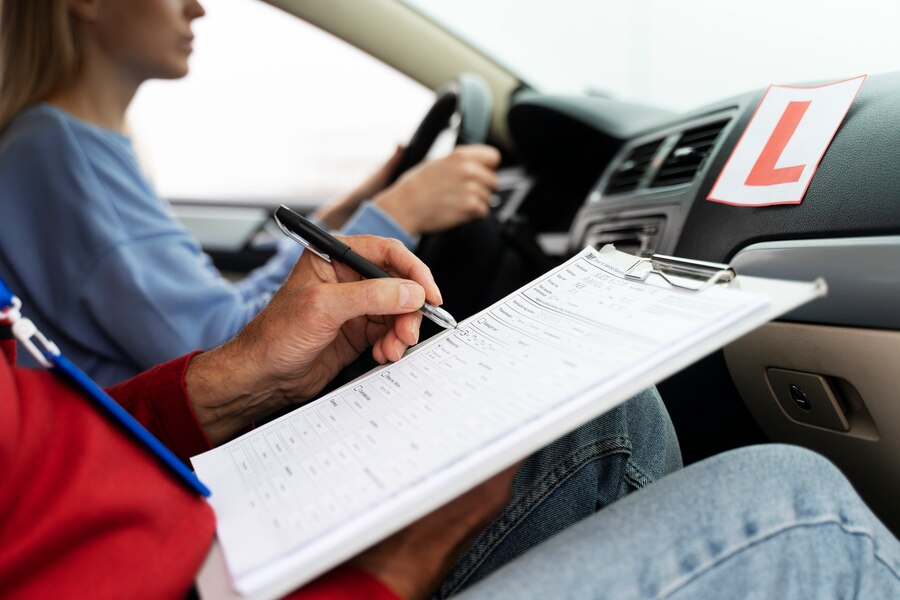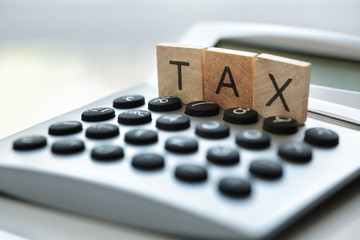When it comes to enjoying the scenic lakes and vibrant cities of Michigan, non-residents should be aware of the specific rules and regulations surrounding recreational cannabis use. From Michigan recreational limits out-of-state to Michigan dispensary limits out-of-state, understanding these guidelines will ensure a hassle-free experience. This article dives into Michigan’s weed laws for non-residents, helping you navigate the legal landscape with ease.
Understanding Michigan’s Recreational Cannabis Laws for Non-Residents
In Michigan, recreational cannabis was legalized in December 2018, allowing adults aged 21 and over to possess and consume marijuana. However, there are distinct regulations that apply specifically to non-residents, which are important to understand to comply with the Michigan weed limits out-of-state. Non-residents can purchase and possess the following amounts under Michigan law:
Possession Limits
Non-residents can legally possess the following amounts of cannabis under Michigan law:
- Flower: Up to 2.5 ounces, which is approximately equivalent to 71 grams. This limit applies to the total amount of cannabis flower a non-resident can possess at any given time.
- Concentrates: Non-residents are permitted to possess up to 15 grams of cannabis concentrates, such as oils, waxes, and shatter. Concentrates are potent forms of cannabis that have been extracted from the plant material.
- Edibles: The THC content in edible cannabis products must not exceed 100 milligrams per package. Edibles are food products infused with cannabis extract, and non-residents should be aware of the potency of each edible to avoid consuming more THC than intended.
Purchasing Cannabis Products
To acquire cannabis products legally in Michigan, non-residents must purchase them from licensed dispensaries. Here’s what you need to know:
- Licensed Dispensaries: Only purchase cannabis products from dispensaries that are licensed by the state of Michigan. This ensures that the products meet regulatory standards for quality and safety, providing consumers with a reliable and consistent experience.
- Valid ID: It’s crucial to carry a valid government-issued ID to prove your age (21 and over) when purchasing cannabis products. Acceptable forms of ID include a driver’s license, passport, or state ID card. Dispensaries are legally required to verify the age of customers before selling cannabis products to them.
Compliance with State Regulations
When consuming cannabis in Michigan as a non-resident, it’s essential to adhere to all state regulations to avoid legal issues. Here are some additional considerations:
- Public Consumption: Cannabis consumption is not permitted in public places, including parks, streets, sidewalks, and other areas accessible to the general public. Consumption must take place in private residences or other designated areas where permitted by law. Violating this regulation can result in fines or other penalties.
- Transportation: When transporting cannabis, ensure that it is stored securely in a sealed, tamper-evident container and is not accessible while driving. Crossing state lines with cannabis is illegal under federal law, even if both states involved have legalized cannabis. Non-residents should familiarize themselves with the transportation regulations of both Michigan and their home state to avoid legal issues.
Purchasing cannabis products must be done at licensed dispensaries, and it’s essential to carry a valid ID to prove your age.
Where Can You Consume Cannabis in Michigan?
Consuming cannabis in Michigan comes with its own set of rules. For non-residents, understanding where you can legally use cannabis is crucial:
Private Property
Private property stands as the most secure location for consuming cannabis in Michigan. However, it’s imperative to obtain explicit permission from the property owner before indulging. Whether you’re at a friend’s house or a rented accommodation, ensure you have the owner’s consent before lighting up.
Prohibited Areas
While the legalization of cannabis in Michigan represents a significant milestone, it’s crucial to note the areas where consumption remains strictly prohibited:
- Public Places: Cannabis consumption is not permitted in public spaces. This includes parks, streets, sidewalks, beaches, and other areas accessible to the general public. The intent behind this regulation is to prevent exposure to cannabis for non-consenting individuals, particularly children and non-users.
- Vehicles: Just like alcohol, consuming cannabis while operating a vehicle is strictly illegal in Michigan. This applies to both drivers and passengers. The state’s strict DUI laws encompass cannabis impairment, and penalties for driving under the influence can be severe.
- Hotels and Rental Accommodations: Many hotels, motels, and rental properties have policies against cannabis consumption on their premises. It’s advisable to review the establishment’s rules and regulations regarding cannabis use before booking your stay. Some accommodations may offer designated smoking areas or allow cannabis consumption in specific rooms, while others enforce a strict no-smoking policy.
Designated Consumption Lounges (pending legislation)
While not yet established at the time of writing, Michigan is considering legislation to allow for designated consumption lounges. These establishments would provide a legal and regulated space for individuals to consume cannabis products in a social setting. However, until such legislation is enacted and regulations are in place, consuming cannabis in public areas remains prohibited.
Transportation and Crossing State Lines

When it comes to transporting cannabis, non-residents should be extremely cautious. Here are some guidelines:
Within Michigan
When transporting cannabis within Michigan, the following guidelines apply:
- Container Requirement: Cannabis must be stored in a sealed, tamper-evident container during transportation. This container should prevent access to the product while driving, ensuring compliance with Michigan law.
- Accessibility: It’s crucial to ensure that cannabis products are not readily accessible to the driver or passengers while the vehicle is in motion. Placing the container in the trunk or another inaccessible area of the vehicle is advisable to prevent any potential legal issues.
Crossing State Lines
Transporting cannabis across state lines presents significant legal risks, even if both states involved have legalized cannabis. Here are key points to consider:
- Federal Laws: Despite the legalization of cannabis in various states, including Michigan, federal laws still classify marijuana as a controlled substance. This means that transporting cannabis across state lines is illegal under federal law, regardless of individual state regulations.
- Legal Consequences: Violating federal laws by transporting cannabis across state lines can result in severe legal consequences, including federal charges and potential prosecution. It’s essential to understand that state legalization does not supersede federal law in this context.
- Border Patrol and Transportation Authorities: Border patrol agents and transportation authorities actively monitor interstate travel for illegal substances, including cannabis. Individuals caught transporting cannabis across state lines may face confiscation of the product, fines, and possible criminal charges.
Penalties for Non-Compliance
Failure to comply with these regulations can lead to severe legal consequences, including fines and criminal charges. Let’s explore the potential penalties for non-compliance with Michigan’s cannabis laws, particularly for out-of-state individuals.
Possession over the limit
One common violation of Michigan’s cannabis laws is possession of cannabis exceeding the legal limit. The consequences for this offense can be significant:
- Fines: Individuals found in possession of cannabis exceeding the legal limit may face substantial fines, depending on the amount in excess and other factors.
- Potential Jail Time: In more severe cases, particularly if the amount of cannabis possessed significantly exceeds the legal limit, individuals may face the possibility of imprisonment. Jail time can vary depending on the circumstances of the offense and any previous criminal history.
Consuming in public
Another violation of Michigan’s cannabis laws is consuming cannabis in public places. This includes parks, streets, sidewalks, and other areas accessible to the general public. The penalties for public consumption can include:
- Civil Infraction: Public consumption of cannabis typically results in a civil infraction, rather than criminal charges. However, this still carries legal consequences and may result in fines.
- Fines: Individuals caught consuming cannabis in public may be subject to fines, the amount of which can vary depending on local ordinances and other factors.
Other Potential Penalties
In addition to the specific scenarios outlined above, there are other potential penalties for non-compliance with Michigan’s cannabis laws:
- Confiscation of Cannabis: Law enforcement officers have the authority to confiscate any cannabis found to be in violation of state laws. This means that individuals may lose their cannabis products if they are found to be non-compliant.
- Criminal Record: Depending on the severity of the offense, individuals may end up with a criminal record, which can have long-lasting consequences, including difficulties with employment, housing, and other aspects of life.
How to Purchase Cannabis Safely and Legally
For non-residents looking to purchase cannabis within the Michigan dispensary limits out-of-state, following these steps can ensure a safe and legal transaction:
Find a licensed dispensary
When purchasing cannabis in Michigan, it’s imperative to choose a dispensary that is licensed by the state. This ensures that the products sold meet regulatory standards for quality and safety. Here are some steps to find a licensed dispensary:
- Research: Use online resources such as dispensary directories or official state websites to identify licensed dispensaries in the area you plan to visit.
- Verification: Before making a purchase, verify the dispensary’s license status through official channels. This can usually be done online or by contacting the state regulatory authority.
- Reviews: Read reviews from other customers to gauge the reputation of the dispensary and the quality of their products and services.
Bring identification
To purchase cannabis legally in Michigan, you must be 21 years of age or older. It’s essential to bring a government-issued identification card to verify your age. Acceptable forms of ID include:
- Driver’s License: A valid driver’s license issued by any state or territory of the United States.
- Passport: A current and unexpired passport issued by any country.
- State ID Card: A state-issued identification card that verifies your age and identity.
Understand the products
Before making a purchase, take the time to understand the various types of cannabis products available and their effects. This knowledge can help you make informed decisions and choose products that align with your preferences and needs. Here are some key points to consider:
- Types of Products: Cannabis products come in various forms, including flower (bud), concentrates, edibles, tinctures, and topicals. Each type has different methods of consumption and effects.
- Potency and Dosage: Pay attention to the potency of the products, typically expressed as the percentage of THC (tetrahydrocannabinol) and CBD (cannabidiol). Start with lower-potency products if you are new to cannabis or have a low tolerance.
- Effects: Familiarize yourself with the effects of different strains and products. Indica strains are known for their relaxing and sedating effects, while sativa strains tend to be more energizing and uplifting. Hybrid strains offer a combination of both.
Impact of Michigan’s Cannabis Laws on Tourism
Michigan’s progressive stance on cannabis has not only influenced local culture but also significantly impacted tourism. Non-residents visiting Michigan are drawn not only to the state’s natural beauty and urban offerings but also to its accessible recreational cannabis market. Here’s how Michigan’s cannabis laws are shaping tourism:
Boost to Local Economies
The influx of tourists specifically visiting to purchase and consume cannabis has led to increased revenue for local businesses, including dispensaries, restaurants, and hotels. This economic boost is vital for community development and supports local entrepreneurship.
Educational Opportunities
Many dispensaries offer educational sessions and tours that explain different cannabis products and their responsible use. These programs are particularly beneficial for non-residents unfamiliar with cannabis, ensuring they understand the Michigan recreational limits out-of-state and other local regulations.
Cultural Events
Cannabis legalization has given rise to a variety of cultural events, such as festivals and exhibitions, which celebrate the cannabis industry and its contributions to local culture. These events provide a platform for visitors to experience the social aspect of cannabis use in a community setting, enhancing their overall travel experience.
Conclusion
By understanding these key aspects of Michigan weed limits out-of-state, non-residents can enjoy their visit to Michigan without running afoul of local cannabis laws. Whether you’re here to explore the Great Lakes or experience the bustling city life, keeping these guidelines in mind will ensure a trouble-free and enjoyable stay.
FAQ
No, only Michigan residents are allowed to cultivate cannabis at home, with a limit of 12 plants per household.
No, dispensaries in Michigan serve both residents and non-residents alike, as long as they meet the age requirement and adhere to the Michigan recreational limits out-of-state.
Remain calm, provide identification, and cooperate with law enforcement. Ensure that any cannabis is stored according to state regulations, which can help in demonstrating compliance with the law.



